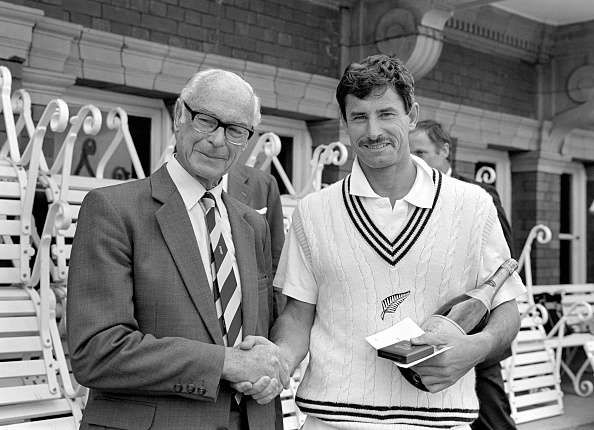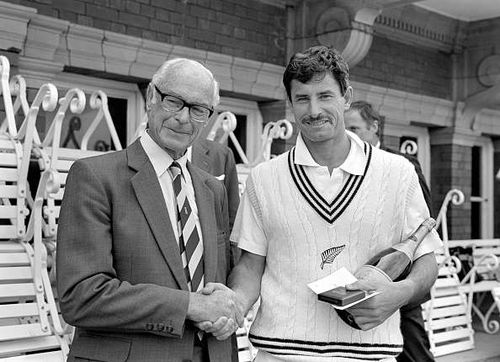
5 cricketers who were more successful than their fathers
In the history of cricket, there have been many instances where two brothers have played alongside each other, most popularly the Waugh’s (Steve, Mark) and the Chapell’s (Ian, Greg and Trevor). Father-son duos are also a common phenomenon in International cricket, the most popular Indian’s among them being former Indian batsman Sunil Gavaskar and his son Rohan Gavaskar.
Comparing the duo, Sunil Gavaskar has achieved far more than what his son could have ever imagined. Roger Binny’s international record was also quite impressive, his son Stuart is till trying hard to book a permanent berth in the Indian cricket team. Former Australian player Geoff Marsh’s both sons, Shaun and Mitchell play for the national team and have been reasonably successful. But what about going the other way around?
Let us have a look at 5 instances where the son was more successful than their fathers:
#1 Walter Hadlee and Richard Hadlee

Richard Hadlee is termed as of the best fast bowlers of all-time, and his presence in the team made New Zealand a force to reckon with. He was the first player to reach 400 Test wickets, and along with his hard-hitting skills, was named as one of the four greatest all-rounders of his time alongside Kapil Dev, Ian Botham, and Imran Khan.
Hadlee’s most remarkable performance was the one against Australia during the 1985-86 tour in Brisbane where he took 15 wickets in the match. The Kiwi was given knighthood in 1990 for his contribution to cricket and is also a former chairman of the New Zealand board of selectors.
Walter Hadlee may have played only 11 matches for New Zealand, but his contribution to the nation has still been immense. Apart from being a player, he was a captain, selector and also the manager of the team from Down Under. Born in Christchurch to a blacksmith father, he was into rugby and cricket.
Hadlee led the Kiwi’s to their tour of England in 1937, and played his last match in March 1951, and has one century to his name. Walter passed away in Christchurch on September 29, 2006, at the age of 91.